Key Messages from the Afghanistan 2022 Conference

- Humanitarian needs in Afghanistan are at unprecedented levels. Over 24 million people – 59 per cent of the population –require lifesaving assistance in 2022, a considerable 30 per cent higher than last year. At the same time, a devastating drought – the worst in almost 30 years – has affected three quarters of provinces. Twenty-three million people face acute hunger, close to 9 million of them at emergency levels (IPC 4), while more than 4 million children under the age of 5 are at risk of acute malnutrition. The situation is exacerbated by a surge in preventable disease outbreaks such as measles and acute watery diarrhea. Over 90 per cent of children – almost 16 million – live in areas of high-water vulnerability. Close to 6 million people have been internally displaced by conflict and natural disaster since 2012. After decades of war, Afghanistan is one of the most weapon-contaminated countries in the world. In the last seven months alone, 294 children have been killed or injured by explosive remnants of war and landmines. Some 4.5 million children and families are estimated to be in need of mental health and psychosocial support services.
- Severe economic contractions and crippled banking and financial systems are a key driver of humanitarian needs following the withdrawal of core development assistance, the freezing of Afghanistan’s foreign exchange accounts, and the profound disruption of official financial transactions. The deteriorating economy has led to an immediate GDP contraction of an around 32 per cent; basic services, including health and education, remain under serious strain; inflation for basic household goods has shot up by 40 per cent while wages have sharpy declined. Food now accounts for more than 80 percent of the average household expenditure. A staggering 95 per cent of the population continues to face insufficient food consumption. Livelihoods have been crushed and people’s limited reserves expended. Many are forced into harmful and irreversible coping mechanisms to survive, including child marriages and child labour. Households hosting persons with disabilities are disproportionally affected, as 85 per cent employ crisis-level strategies to put food on the table.
- Donor contributions in 2021 saved lives. In 2021, thanks to $1.8 billion in contributions, humanitarian partners reached close to 20 million people across all parts of the country with life-saving assistance including food, clean water, healthcare, protection, shelter, education and winterization. Nearly 13 million people have received assistance already in the first 8 weeks of 2022.
- Humanitarian funding requirements have tripled this year to $4.4B. In 2022, humanitarian partners will reach a staggering 22 million people with food, water, health, protection, shelter, education, and other forms of life saving interventions. With steep deterioration in the situation, more is needed this year than last and humanitarian funding requirements have tripled. Donors are urged to fast-track timely, unconditional and flexible funding to the response to save lives and livelihoods. The 2022 humanitarian appeal is currently 13.2 per cent funded.
- Pooled funds played a particularly important role:
- In 2021, the ERC allocated $93m from CERF to life-saving action in Afghanistan, making it by far the largest recipient country globally. This included an extraordinary allocation of $45m in October to WHO and UNICEF, which supported provision of healthcare in more than 2,000 health facilities in 31 provinces for three months, through January 2022.
- The Afghanistan Humanitarian Fund (AHF) is the largest Country-Based Pooled Fund with $270 million from 20 donors. By the end of 2021, AHF allocated over US$150 million to support 243 projects, implemented by 70 partners, targeting 24.9 million of people in 34 provinces. The AHF provides needed resources directly to front line workers including both National and International NGOs.
- Emergency response is necessary but insufficient to meet the totality of needs now present in the country. The economy and basic institutions of the state must be preserved, including essential service delivery, in order to stave off worsening food insecurity and a complete breakdown in the social fabric. Isolation from the international financial system jeopardizes both the emergency response and essential service delivery such that restoration of the formal banking system is critical.
- While physical access for humanitarian operation has notably improved since September 2021, partly owing to a reduction of conflict, some forms of interferences persist. The most frequently recorded constraints are attempts by local de facto authorities to influence assessments and distributions processes. Humanitarian leadership in-country continues to engage the defacto-authorities at national, provincial and district levels to ensure unhindered access.
- The de facto authorities’ decision to delay the return to girls to secondary school is a major setback for girls and their futures, but also for the country. We urge the de facto authorities to honor their commitment to ensuring education is accessible to all children- boys and girls.
- Women are central to the delivery of humanitarian assistance. Although de facto authorities in 27 provinces agreed to the full participation of female staff in humanitarian activities, female aid workers continue to face serious challenges and personal risk, including restrictions on their movement. Humanitarians reiterate their commitment to promoting human rights in Afghanistan and continue to engage the de facto authorities to deliver on their promises to protect the rights all Afghan citizens.
- Nearly 6 million Afghan refugees and others, including many undocumented persons, had been hosted by the neighbouring countries for decades. The Afghanistan Regional Refugee Response Plan (RRP) for 2022 underpins a cross-border vision that ultimately seeks to improve the overall humanitarian situation of Afghans and advance their protection and prospects for solutions.



